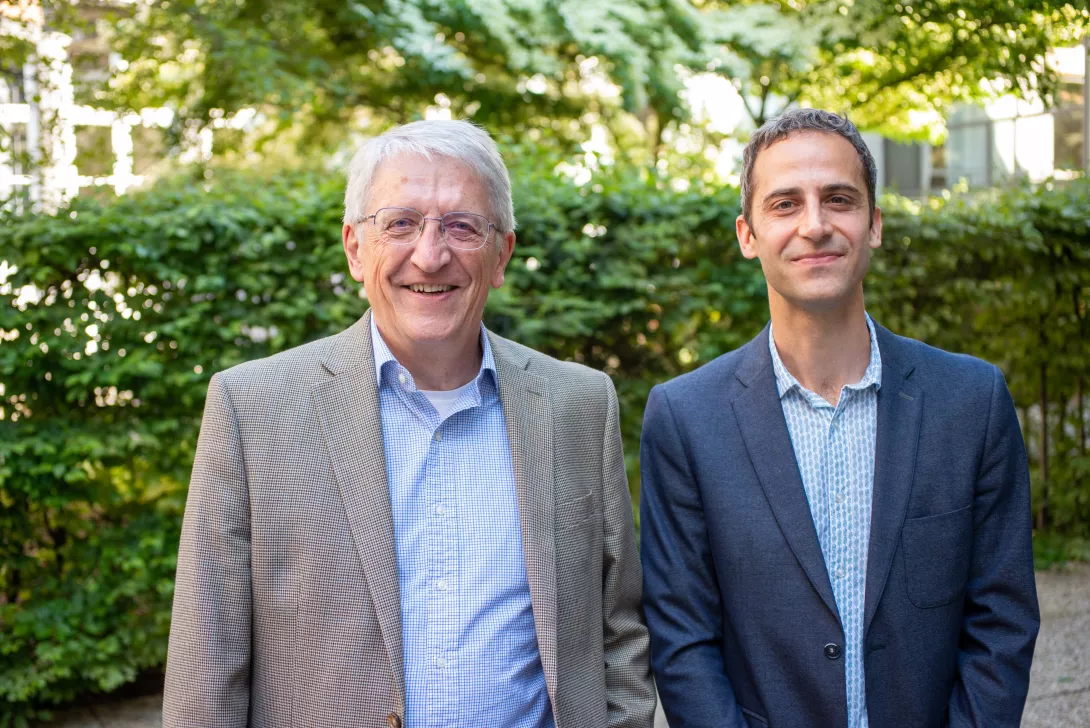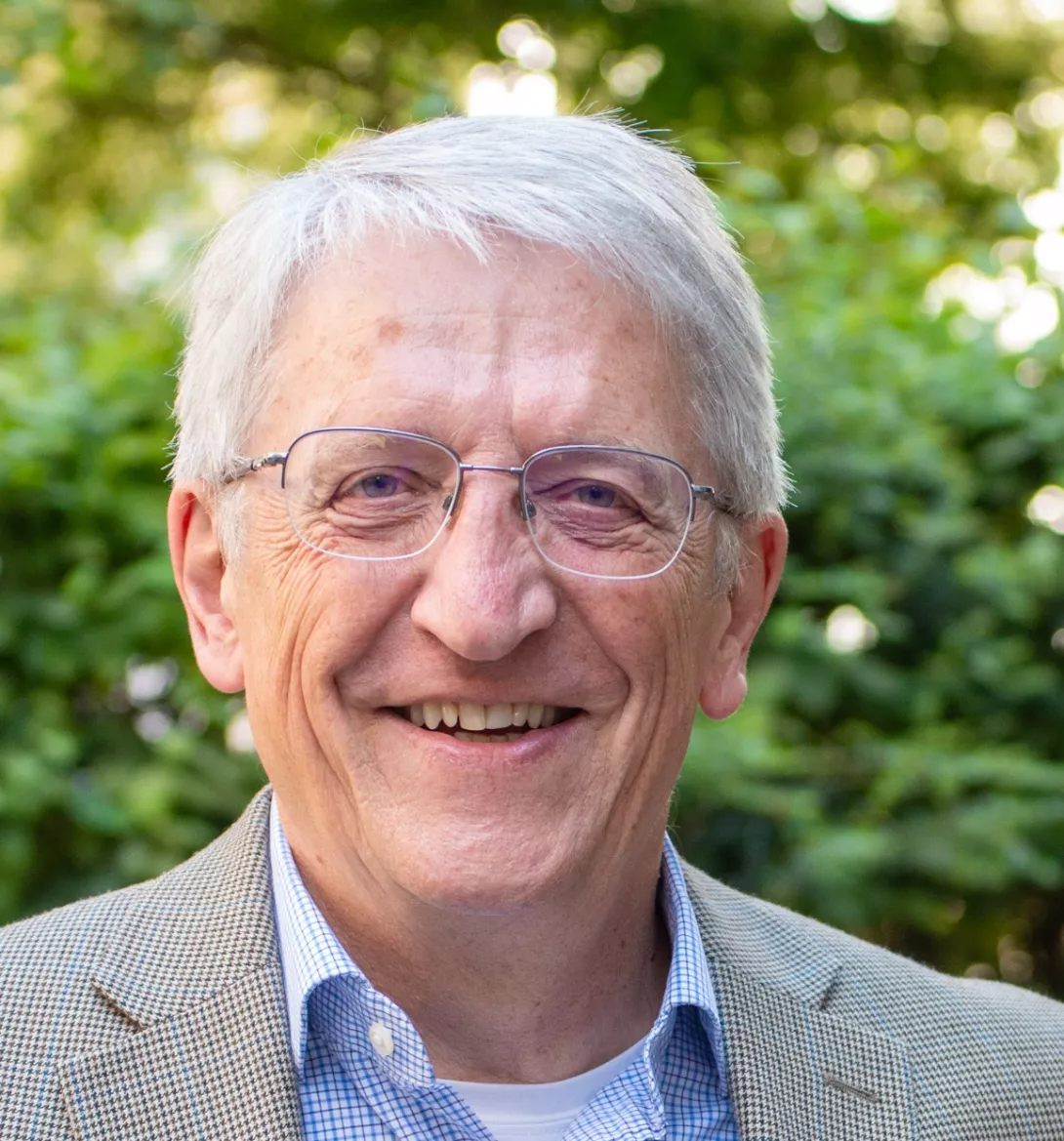
His research interests include the design and development of functional materials for energy and light-emitting devices (photovoltaic cells and organic LED displays).
He has held various positions during his career, including at the University of Mons, the University of Arizona, the Georgia Institute of Technology and the King Abdullah University of Science and Technology. He has also been awarded numerous prizes, including the Francqui Prize and the Descartes Prize of the European Union. In all, he has published more than 1,200 articles for a total of 167.
Invited by Yoann Olivier, Professor at the UNamur, with whom he has a shared history, Jean-Luc Brédas gave a talk entitled "New generations of active layer materials for organic electronics: recent advances", during which he discussed his research and applications in the fields of photovoltaics and light-emitting diodes (LEDs), and in particular the link between the properties of these materials and their efficiency. These new materials, polymers, or small molecules with astonishing properties, can be used in a wide range of innovative applications: new-generation photovoltaic cells, devices such as folding-screen telephones, televisions or display panels with transparent screens, car headlights, lighting equipment that can be given any shape you like, or even televisions whose screens roll up in a base.

A long history in Namur and at the University of Namur
Jean-Luc Brédas is enthusiast about his years spent in Namur, from his 3rd year of primary school to his doctorate and his tenure as an FNRS Qualified Researcher until 1988.
"I spent 26 years with the Jesuits. My mother moved to Namur so I could do all my schooling in the same place. At the time, the College and the Faculties had a common director, who was the Rector. I remember that we had the honour of being congratulated by him if we had a good report card! I was also part of the 3rd class of chemistry graduates in 1976. "
"I'm also proud to have been the only student that Professor Gaston Deconninck, who was reputed to be very tolerant, threw out of his class for gossiping... I was passionate about football, so I absolutely had to comment on the results of matches with my classmates at the time.
After eleven years at UMons, I went to the University of Arizona in 1999 for four years. Then I went to Georgia Tech in Atlanta, where my colleagues and I created the Centre for Organic Electronics and Photonics. I'm now back at the University of Arizona. I remember that one of our teachers, Father Fourez, s.j., was interested in the Indians of the south-west of the United States. He used to tell us about the Apaches, the Hopis, and the Navajos. Is it by chance that today I have a house in Navajo County?"
A shared past
Yoann Olivier: Jean-Luc Brédas and I have a shared past at the UMons, where he created the new materials chemistry laboratory. I spent several research periods in his laboratory at Georgia Tech during my PhD, for a total of 4 months. Jean-Luc was also co-author of my first scientific paper.
Jean-Luc Brédas: Yes, it's funny, Yoann and I have the same background, but in reverse. I started at the UNamur and then went to UMons. He started at the UMons and then came to the UNamur.
Y. O.: Jean-Luc is a bit like my scientific grandfather, and a real source of inspiration in my day-to-day research. And he himself did his doctoral thesis with Professor Jean-Marie André at UNamur in 1979.
Jean-Marie André, who died last January, had been a Professor in the Department of chemistry since 1971. He contributed to the development and reputation of chemistry at the UNamur. That was also the year in which the first degrees (master level) in chemistry were introduced. He is one of the promoters of a branch of theoretical physico-chemical sciences known as "quantum polymer chemistry".
His work focused on the methodological developments needed to predict and interpret the underlying properties using numerical simulations. These methodological developments were implemented in original codes that made the reputation of the UNamur Laboratory of Applied Theoretical Chemistry (CTA) at the UNamur (then FUNDP).
Jean-Marie André was a full member of the Académie Royale de Belgique (Class of Sciences) and of the International Academy of Quantum Molecular Science (IAQMS). He was awarded the Francqui Prize in 1991 and received an honorary doctorate from the University of Warsaw. He was the author or co-author of 314 scientific articles. Jean-Marie André was a great teacher. His lectures were crystal clear.
Chemistry is FUN
"That was the student slogan at the time. FUN was the acronym for the Facultés Universitaires de Namur, as they were called at the time. And I do think that chemistry is fun, especially at the UNamur! The scientific training is of extraordinary quality, which enables you to lead an excellent career.
The time of my thesis was also the time of the launch of photonics and organic electronics, a field that had long been considered impossible. It took 20 years and a Nobel Prize to see the extraordinary applications of this technology blossom. At the beginning, the efficiency of organic solar cells was 2%. Today it is close to 20%. By comparison, the efficiency of a silicon solar cell found on the roofs of our homes is around 26%.
Chemistry is an intuitive discipline, an interesting way of looking at the world, a passion for seeing new things develop in the field of materials science or life sciences. It's also a way of contributing to sustainable development by seeking solutions to the problems we face today. On a daily basis, we try to improve the efficiency of organic solar cells or organic light-emitting diodes to avoid using rare and expensive metals, by reducing the cost of synthesising these molecules or using green solvents.
Whatever you do, do it with passion. So, the sky is the limit!”
The laboratory for computational modelling of functional materials
Yoann Olivier's team is carrying out research as part of an FNRS MIS project, which was awarded in October 2021 and rewarded at the UNamur by a fellowship from the Namur Research College (NARC), with Jean-Luc Brédas as mentor.
Y.O.: "Choosing Jean-Luc as a mentor for my NARC fellowship was an obvious choice for me and I feel very lucky. Jean-Luc Brédas is clearly one of the leading scientists who has worked and is still working in the field of pi-conjugated functional materials.
I've been happy to know Jean-Luc since 2004, when I started my PhD; visiting his laboratory in 2007 at Georgia Tech was one of the decisive experiences in the pursuit of my academic career.
I learned many lessons from him, and here are the ones I always try to remember:
- Always be curious! Don't be afraid to talk to people with expertise different from your own, you're bound to learn something new.
- Always try to capture the attention of your audience by delivering the most educational message and highlighting your take-away messages.
- Work on subjects that appeal to you and you're sure to produce high-quality work.
- Enjoy every aspect of your life and be a good and respectful person."
